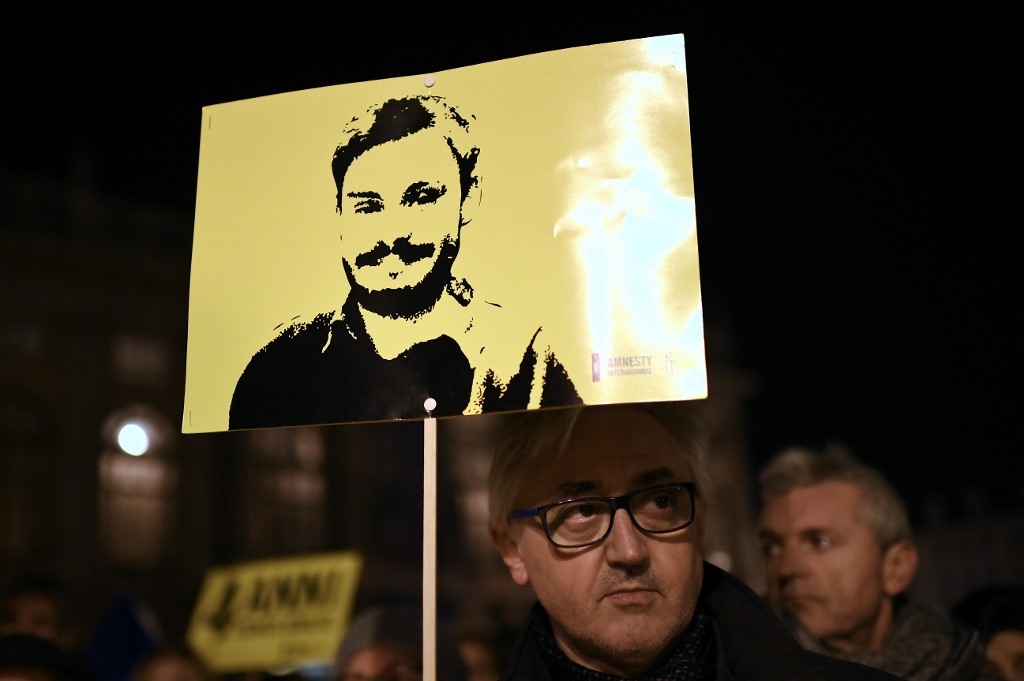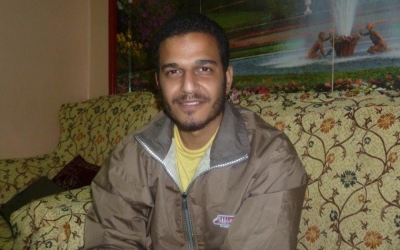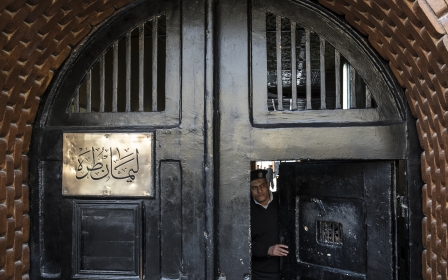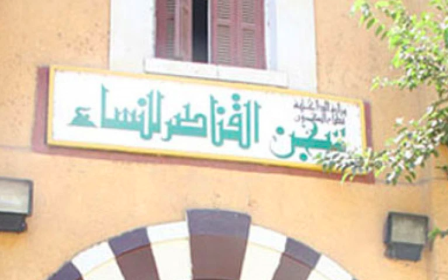Egyptian officials to face trial over torture and murder of Giulio Regeni

Egyptian security officials will likely face trial in Italy over the murder of student Giulio Regeni, The Times reported on Monday.
Regeni, a 28-year-old doctoral researcher at Cambridge University, disappeared in Cairo in January 2016 and his body was later discovered in February by the Cairo-Alexandria highway.
His murder remains unsolved, but Rome prosecutors said last year that he was ensnared in a "spider's web" spun by the Egyptian security services in the weeks leading up to his death.
Regeni's body showed extensive marks of torture and the Egyptian security services have been suspected in the killing due to Regeni's research into trade union organising.
An Italian investigative source told The Times that Rome wants five suspects to stand trial, including Egyptian national security agency official Major Magdy Ibrquaim Abdelaal Sharif.
"It is very probable that Sharif will go to trial," the source said.
Due to the Egyptian government's repeated obstructions and denials that its officials were behind the murder, the officials will likely be tried in absentia.
The Italian investigators have used witness accounts and phone records provided by the Egyptian government to link Regeni's killing to the officials.
"Other evidence gathered which has not yet been revealed will come out at trial," the source told the UK daily, with the investigation expected to conclude on 4 December.
'Calling card' of Egyptian security services
The trial will likely reveal more details about Regeni's horrific death, with his body so badly mutilated by torture that his mother could only identify her son by the tip of his nose.
He had sustained a broken neck, wrist, toes, fingers and teeth before his death, while initials were carved into his badly burned and bruised skin.
The last act of mutilation is said to be a "calling card" of the Egyptian security services, according to The Times.
Cairo claims that he was murdered by a "criminal gang", a theory rejected as ludicrous by Italian investigators.
Egyptian authorities have also failed to provide the Italians with contact information necessary for investigators to send evidence against them, prior to a trial.
"Officially the trial can proceed only if the accused is aware of it, but if we can prove to the judge that the communication between Italy and Egypt, as well as news coverage, has cited Sharif numerous times, the judge can decide the lack of response is a tactic and can proceed with the trial," the source told the UK daily.
The trial will also likely shine a light on the estimated 60,000 political prisoners imprisoned after a military coup led by now- President Abdel Fattah el-Sisi.
Last week, Cairo detained three human rights workers from the Egyptian Initiative for Personal Rights group, sparking international outcry.
Many of those detained include government critics and civil society workers who have been increasingly targeted since a controversial NGO law was ratified by Sisi in 2017. The law was criticised by civil society activists as "the worst in history". EIPR has been among the targets of the Sisi government's crackdown on rights organisations.
In 2016, its founder Hossam Bahgat was banned from travel and had his financial assets frozen over his work. In February, Patrick George Zaky, a researcher for EIPR, was detained, tortured, and later faced charges of "calling for protests without permission", "spreading false news" and "inciting violence and terrorism".
Sisi has largely avoided US government criticism over Egypt's appalling human rights record under Donald Trump. But Antony Blinken, Biden's incoming secretary of state, responded to the arrests on Friday by tweeting: "Meeting with foreign diplomats is not a crime. Nor is peacefully advocating for human rights."
Middle East Eye delivers independent and unrivalled coverage and analysis of the Middle East, North Africa and beyond. To learn more about republishing this content and the associated fees, please fill out this form. More about MEE can be found here.






